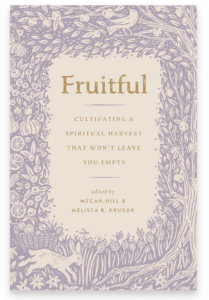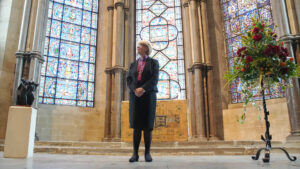The hospital room is a kaleidoscope of machines and tubes and stuffed animals, with a very sick child at the center. He doesn’t notice my entrance; sedatives course through his bloodstream, keeping him from pulling at the ventilation tube delivering breath to his soggy lungs. I pause at the foot of his bed, surveying the scene.
Jacob: a week ago, he was perfectly healthy. Yet here we are.
When Can I Have My Baby Back?
On the far side of the room, his mother and father sit up expectantly. I can tell they’re struggling to wrap their minds around how quickly it all went wrong. In their minds, he is still their perfect, healthy boy. This sudden illness is an unwelcome intrusion they’re scrambling to understand—not just to understand, but to move past.
What is wrong with my child and how long will it last? I’ve spent my career trying to help parents understand what is happening with their children, but it took me a while to recognize how crucial that second question is. Even if they understand what’s gone wrong, what parents really want to know is, When can I have my baby back?
As I take a step in the parents’ direction, they look at me with a mixture of hope and apprehension. “Good morning, I’m Dr. James,” I begin. “I’m one of the Infectious Diseases doctors.”
In better circumstances, I joke with parents that I’m not the kind of doctor you want coming to see your child. My presence usually means something is seriously wrong. That’s the case here, and Jacob’s parents communicate their tension with just a look.
I am a help and an ally, that much is obvious, but I also threaten to upend whatever fleeting emotional stability they’ve managed to muster in this moment. When I step into such a room, I’m often met with a pleading look that says, Please don’t mess this up. I am the potential bearer of bad news. One word from me could send them down an even darker path.
I am often met with a pleading look that says, Please don’t mess this up.
I start off by letting the parents know their primary doctors have called me alongside to help think through what’s causing Jacob’s illness and how best to treat it. We don’t know the answer to those questions yet, but a lot of really good people are working hard to figure it out.
At this early stage, I’m upfront about what we do and don’t know, what we can expect and what we cannot predict. Jacob’s parents need me to be calm and confident, but if I overplay my bravado or make assertions that don’t pan out, I risk damaging the trust we need to build. Giving false hope is a fool’s errand, and I’ve yet to meet a parent who wants to be lied to.
Asking a Loaded Question
I ask Jacob’s parents how they think he’s doing so far this morning. It’s a loaded question. Their precious child is lying unresponsive in a hospital bed, tubes and wires everywhere, puffy to the point of being unrecognizable, even to them—especially to them.
What do I expect them to say? “Oh, he’s great, thanks. And you?”
But how they respond to a question like this tells me a lot about how they understand the situation. Do they grasp how sick he is? Are they optimistic, hopeful even? Pessimistic and resigned? Are they holding on or giving up? This loaded question helps me read the room and learn how best to minister to them in this situation.
Jacob’s parents are hopeful—realistic, but hopeful. They realize he is very sick, that things were touch and go for a while. He isn’t much better now, but at least he’s not moving the wrong direction anymore.
As I listen to them process the events of the morning, I take in the surroundings. They have not been here long, but already the room is filling with cards and notes from loved ones. Among them, a piece of cardstock with curly writing—the kind of beginner’s calligraphy my daughter loves to practice—declares, “The Lord is my shepherd.” A care package from the family’s church sits in the corner on the foldout bed.
A Church Steps Up
When a child is seriously ill, there is a correlation between the level of support a family receives and a parent’s emotional well-being. This is one of those moments when belonging matters. As a follower of Jesus, I experience a particular joy when I see his church behaving beautifully in support of grieving families.
Jacob’s family was clearly receiving the blessing of a faith family who chose to bear one another’s burdens (Gal. 6:2). I used to understand that command in the abstract, but living and working so close to tragedy has embodied it in the form of people who love one another and go out of their way to show it. Even in the midst of grievous circumstances, Jacob’s church family was clearly demonstrating God’s love and his parents were buoyed by it.
Jacob’s family was clearly receiving the blessing of a faith family who chose to bear one another’s burdens.
As my conversation with Jacob’s family continues, I sense how they’re approaching this horrible situation from a spiritual perspective. Their words are laced with vocabulary that speaks of dependence on God. It’s vital that I pick up on spiritual clues like these so I can understand how best to help them. When parents bring their children to see me, they want their concerns to be heard and, with surprising frequency, their underlying concerns are not physical but psychological, emotional, and spiritual.
I examine Jacob and begin to wind down my conversation with his parents, telling them of pending tests and current treatments. I let them know we will adjust his therapy based on how he’s doing and what his tests show. They are anxious but grateful. They tell me they are keeping hope.
It’s a gift to talk with parents who have genuine hope; but given the level of illness I work with, I don’t blame parents who lose it. One mother quietly listened to my updates and answered my questions as I examined her baby, while telling me with her sad eyes that she knew none of our efforts were working and she expected this to be the last night she’d hold her baby’s hand.
Helplessness is contagious—and hers hit me like a punch in the gut. I absorbed it as best I could in an effort to find that elusive balance between empathy and mettle. People want doctors who will walk through the valley with them, but it’s no help if we go weak in the knees while we’re down there.
Remember the Shepherd
As for Jacob’s parents, they are reeling, but seem to be drawing from some deep well of hope. I think I know what it is. Turning to leave, I point to the hand-lettered sign: The Lord is my shepherd.
“I’ll update you as soon as I know anything more. In the meantime, let’s believe that.”
Driving home later that day, my mind circles around Jacob: pending tests, possible causes, best treatments, the stuffed animal wedged under his motionless arm, the pain in his parents’ eyes. These things stick with me. Rounding the corner into my neighborhood, I make a conscious effort to shift gears mentally.
Jacob and his parents need me to give everything I have to help him get better, but my family needs me to be fully present when I’m home. I shuffle my thoughts and pray, as I always do when I pull into my driveway: Lord, keep me from bringing the darkness I’ve encountered today back with me into my home.
We Too Are Vulnerable
Close to bedtime, I curl up to read with my youngest daughter. We’re reading through a book together, and as we take turns reading aloud, I can’t help but think about Jacob. She’s not much younger than he. She’s perfectly healthy—but so was Jacob last week. I’m not typically prone to imagining worst-case scenarios, but in this moment as we read together, I have to expel the thought of her lying in a hospital bed like Jacob.
I don’t know if that day will ever come for any of my kids. I pray it doesn’t, but I can’t deny the reality of what Jacob’s parents are walking through right now. That could be us—trying our hardest to stand on solid ground while the world feels like it’s falling away.
But even as I wrestle with that dark thought, there is a glint of light. I saw it in the eyes of Jacob’s parents, peeking out from behind their pain. It was hope, ultimate hope. They reminded me that the hurt is real, but it is not final. In this fallen world, we have to reckon with sickness and death, but this will not always be so.
The Lord is our shepherd. He has already defeated death and is walking us to green pastures. This week, those green pastures may take the form of a timely diagnosis and an effective antibiotic that saves Jacob’s life. Another time, the Shepherd may have a more lasting pasture in mind, a pasture where “he will wipe away every tear from their eyes, and death shall be no more, neither shall there be mourning, nor crying, nor pain anymore, for the former things have passed away” (Rev. 21:4).
I want to spend my life fighting for that first pasture and preparing people for the second.
Get Your FREE eBook: Fruitful, edited by Megan Hill and Melissa Kruger
 How do you measure a successful life? The number of likes or followers? The cleanliness of your kitchen? The sum of the things you’ve checked off your bucket list? A sense of happiness or satisfaction? Is it what other people think about you?
How do you measure a successful life? The number of likes or followers? The cleanliness of your kitchen? The sum of the things you’ve checked off your bucket list? A sense of happiness or satisfaction? Is it what other people think about you?
The Bible often uses the language of “fruitful” to describe a life well-lived. But what does fruitfulness mean, and how do we cultivate a spiritually fruitful life? Fruitful: Cultivating a Spiritual Harvest That Won’t Leave You Empty seeks to answer that question.
We’re delighted to offer this ebook to you for FREE today. Click the link below to get instant access to a resource that will help you cultivate sustainable spiritual fruitfulness.


































